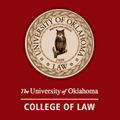Free Consultation: (801) 210-1058Tap to Call This Lawyer

Kenneth Prigmore
Prigmore Law, PLLC
Badges
Claimed Lawyer ProfileQ&A
Biography
Ken Prigmore owns Prigmore Law and has been licensed in Utah since 2006. His focus is on Wills, Trusts and Probates. Ken is careful to give his clients pressure-free options and advice.
When he isn't at work, you can usually find him spending time with his family. Their favorite local vacation spot is St. George, Utah.
Practice Area
- Estate Planning
- Guardianship & Conservatorship Estate Administration, Health Care Directives, Trusts, Wills
Fees
- Free Consultation
- Credit Cards Accepted
- Contingent Fees
Jurisdictions Admitted to Practice
- Utah
-

Professional Experience
- Solo Attorney
- Prigmore Law, PLLC
- - Current
- Solo Attorney
- Wasatch Disability Law, PLLC
- -
- Representing clients seeking Social Security Disability benefits.
- Managing Attorney
- Utah Disability Law
- -
- Practicing Social Security Disability law.
- Associate Attorney
- Jeffs & Jeffs, P.C.
- -
- Representing clients in Social Security claims, drafting estate planning documents, creating corporations, drafting contracts, researching real estate issues.
- Associate Attorney
- Reneer and Associates
- -
- Drafting motions and representing clients at hearings and at trial.
- Clerk / Associate Attorney
- Hughes and Morley
- -
- Meeting with clients. Drafting contracts. Representing clients at hearings.
Education
- University of Oklahoma College of Law
- J.D. (2006) | Law
- -
- Honors: Dean's List
-

- Brigham Young University
- B.A. | English
- -
-

Professional Associations
- Utah State Bar # 11232
- Member
- Current
-

- Utah Association for Justice
- Member
- -
-

- Utah Association for Justice
- President of the Social Security Law Section
- -
-

- Wasatch Front American Inn of Court
- President
- -
-

Publications
Articles & Publications
- "Should My Client Apply for Social Security Disability?"
- Utah Trial Journal
Websites & Blogs
- Website
- Prigmore Law
Legal Answers
185 Questions Answered
- Q. How to access sister's account at CalCoast after her passing?
- A: I am sorry to hear about your difficulty with the bank! You can always retain an attorney in California that can represent you at the bank. You can also sue the bank in California. In the Petition you would request that the Court force the bank to honor your court appointment as executor.
On occasion, I see where someone has been named as the executor in the will, but they did not probate the will, so there is no official court appointment. The court appointment is what will force the bank to give you the money. Sometimes banks in other states don't do well with documents from a differing state.
In Utah, you can give a bank a Small Estate Affidavit, stating that you are collecting ... Read More
- Q. Mom died, no will, I am the beneficiary her bank account. A cashiers check for over $100K, she is both payee and payor.
- A: Though your facts don't specify a question, it is likely you have discovered that you can't cash the check. Sometimes a "Small Estate Affidavit" can be used to collect funds when someone has died. The limit in Utah on using this type of affidavit is $100,000.
As you have funds that exceed that amount, you will need to go through some form of probate to get the authority to withdraw and distribute the funds.
Few people have the patience to learn Probate law and handle the process on their own. It's complicated enough we can't teach you how to do it here. I have helped clients that attempted to do it on their own and failed. This adds time, and sometimes unnecessary ... Read More
- Q. Can a spouse automatically inherit the house even if she's not included on the house's title (in the state of Utah)?
- A: This is a complicated question. In situations like these, details make a difference. Please tell your friend to have a consultation with an Estate Planning attorney. Many of us will talk to you for free.
Here are a few issues that can come up:
Prenuptial Agreement: This is one way to be sure you get what you feel is owed to you. If you don't sign one, there is always a risk that you won't be on the same page with distribution of assets after a 2nd marriage.
Where did your friends marry? If they married in a Community Property state, and then moved to Utah, any property owned prior to the marriage can remain separate property not accessible to surviving spouse in divorce or ... Read More
Social Media
Contact & Map